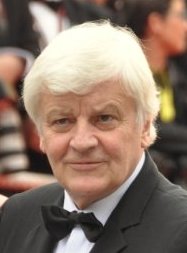A Quote by E. O. Wilson
Ants make up two-thirds of the biomass of all the insects. There are millions of species of organisms and we know almost nothing about them.
Related Quotes
Consider this: all the ants on the planet, taken together, have a biomass greater than that of humans. Ants have been incredibly industrious for millions of years. Yet their productiveness nourishes plants, animals, and soil. Human industry has been in full swing for little over a century, yet it has brought about a decline in almost every ecosystem on the planet. Nature doesn't have a design problem. People do.
There are millions and millions of species, including organisms most people have never heard of. There is so much that waits to be told. We don't know the functions of most of them, but they may be more vital for the planet's future sustainability than we can even dream. And we have to find out; we need to be doing this sort of study.
When I'm writing, I won't know whodunnit until maybe two thirds of the way through. Until then, I know as little as my detective. I just make it up as I go along. It's nerve-wracking, actually. You'll be half through and not know your conclusion. You worry one of these days the ending won't come. I'll be left with only two-thirds of a novel.
Without birds to feed on them, the insects would multiply catastrophically. The insects, not man or other proud species, are really the only ones fitted for survival in the nuclear age. The cockroach, a venerable and hardy species, will take over the habitats of the foolish humans, and compete only with other insects or bacteria.
In a contest between new technology and old ways of life, it is the traditional rhythms that will hold. Traditional societies make up more than two-thirds of the world, the two-thirds that will not be going online to "save" time but will remain wedded to the knowledge that if the bus doesn't come that day, it will come someday. After all, there is nothing but time.
Evolutionary biologists often appeal to parsimony when they seek to explain why organisms "match" with respect to a given trait. For example, why do almost all the organisms that are alive today on our planet use the same genetic code? If they share a common ancestor, the code could have evolved just once and then been inherited from the most recent common ancestor that present organisms share. On the other hand, if organisms in different species share no common ancestors, the code must have evolved repeatedly.
While ants exist in just the right numbers for the rest of the living world, humans have become too numerous. If we were to vanish today, the land environment would return to the fertile balance that existed before the human population explosion. Only a dozen or so species, among which are the crab louse and a mite that lives in the oil glands of our foreheads, depend on us entirely. But if ants were to disappear, tens of thousands of other plants and animal species would perish also, simplifying and weakening land ecosystems almost everywhere.
































